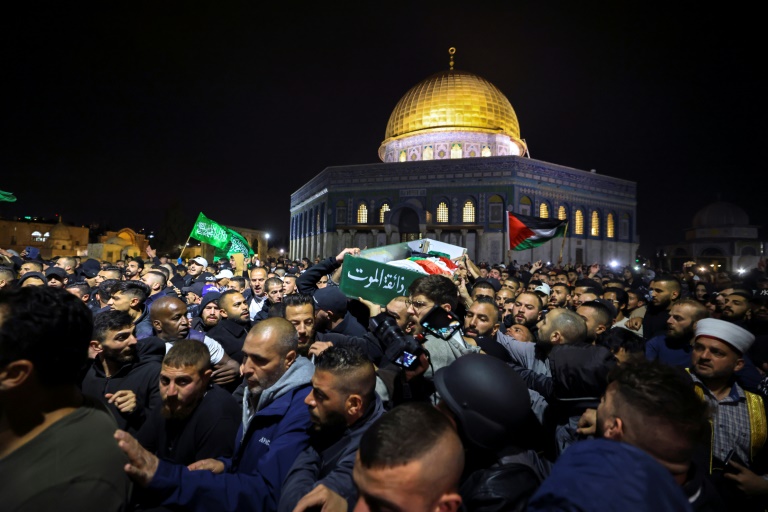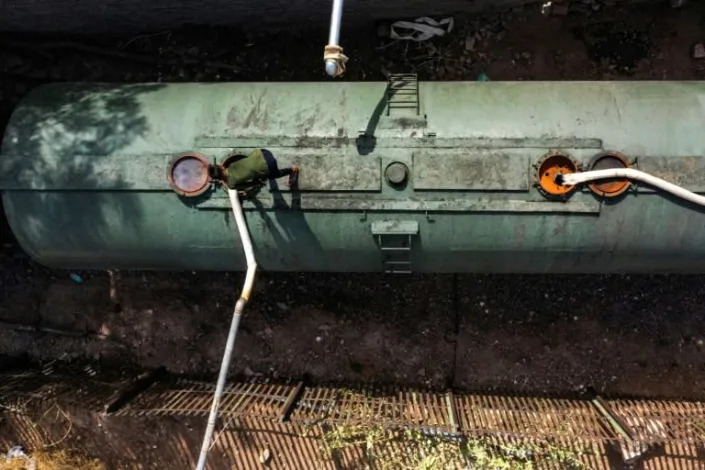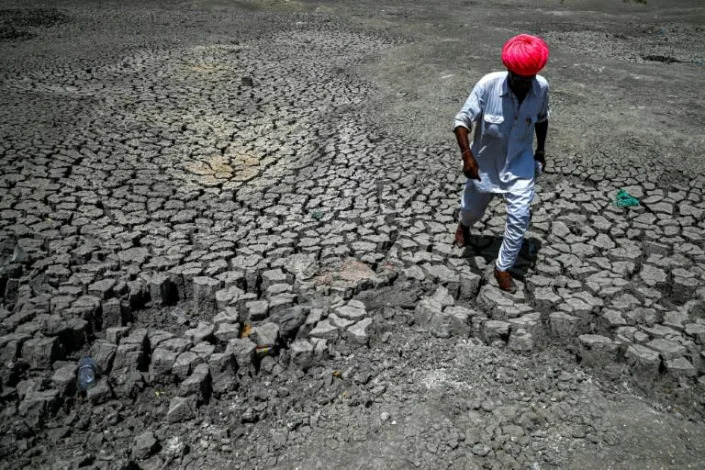The war in Ukraine is having a drastic impact on Africa. Prices for wheat, gas and gasoline are at record highs. Crisis regions could see things get worse than they already are.

In many African countries, the price of basic commodities has doubled
Every morning, the operators of a small kiosk located in an informal neighborhood in Kenya's capital, Nairobi, bake fresh chapati — a popular flatbread.
Chapatis usually cost around 20 shillings (€0.17/$0.17). However, customers can hardly afford it anymore. "Chapati costs twice as much now. Life has become extremely expensive," one customer at the kiosk complained.
Samuel Mose, who heads the small bakery, told DW, that, though prices for wheat flour and sunflower oil have been rising for some time, things are getting worse because of Russia's war on Ukraine.
"We are following the war because we need to know what is happening. Some of the products we use come from those two countries," Mose said.
In Kenya, about one-third of imported wheat comes from Russia and Ukraine. The price increase on the world market is also being felt by the Kenafric wholesale bakery in Nairobi, which produces bread for supermarkets.
"The situation is worrying, not only because of the price, but also because of availability," said Kenafric's manager, Keval Shah.
He regretted that many suppliers had already reduced their contracted quantities because of force majeure.
The 2022 Kenya Economic Survey found that most Kenyans are increasingly turning to their savings and loans to meet the rising cost of living.
Teresa Anderson, the international climate policy coordinator at the nongovernmental organization Actionaid, told DW that many African economies are still reeling from the pandemic, climate change, humanitarian emergencies, or political and economic unrest. The effects of the Ukraine war have exacerbated the situation, she said.

Many low-income earners in Kenya are struggling to cope with rising food prices
Zimbabwe: Gasoline price triples
The global rise in prices is being felt more acutely in Africa than in other parts of the world, Anderson said. "Mothers are skipping meals, going hungry," she said. "Many can no longer pay school fees, are working and dropping out of school."
"In Zimbabwe, the price of gasoline has more than tripled, as has the price of cooking gas," Anderson said. "The price of noodles has more than doubled."
Anderson said many countries were already in a supply crisis. "But, if nothing changes, we could be facing a famine of unimagined proportions," she said.
"The situation is particularly extreme in the Horn of Africa, where 20 million people are already suffering severe hunger because of the ongoing drought," Anderson said.

The war in Ukraine is having a heavier impact on food security in Africa than in many other regions
The UN World Food Programme (WFP) assessment is similarly worrying. In East Africa, prices have skyrocketed because of livestock deaths and crop yields far below the long-term average, said Petroc Wilton, the WFP's spokesman in Somalia.
Wilton said the lack of wheat supplies from Ukraine had aggravated the food crisis.
A humanitarian disaster is brewing in Somalia, according to the WFP. About 6 million people are affected by acute food insecurity, including 1.4 million children. If aid agencies do not receive additional funding, there could be a famine within months.
Hirsiyow Idolo Mohamed has already felt the full force of the crisis. The Somali woman left her impoverished village with her three children and struggled for 15 days on foot through the hot desert with little water and food.
Two of her children did not survive the arduous walk to the newly built camp for displaced people near the town of Dollow, in the Gedo region of southern Somalia.
Farmers flee drought and bombings
"We walked and walked, and my son was very thirsty and exhausted. He asked me many times: 'Mommy, water, mommy, water.' He started gasping, but there was not a drop of water I could give him," Idolo Mohamed told DW.
The 8-year-old died upon arrival at the camp. He had been weakened from the journey and suffered from a severe cough.
According to the WFP, more than 500,000 people left their homes this year alone because of the drought.
In West Africa, the security situation is also hampering food supplies. For example, farmers could not cultivate their fields because of attacks by the terrorist organization Boko Haram.
Alarm bells ringing
For Assalama Dawalack Sidi, regional director of the international charity organization Oxfam in Niger, action is urgently needed to avert a humanitarian catastrophe.
"This is an alarm signal for the world," Sidi said. "We are witnessing 27 million people in West Africa being affected by the worst food crisis in the past decade," he said, adding that the number could rise to 38 million people if nothing is done.
Yet wheat wouldn't have to be in short supply as there are significant reserves.
Experts estimate that China, for example, has about half of the world's wheat stocks in its warehouses. However, they fear that the People's Republic could exploit the global food crisis by using grain to get concessions.
"China has enough reserves to support poorer countries in Africa with food supplies," Hendrik Mahlkow, of the Kiel Institute for the World Economy, told DW. The Communist Party could thereby increase its economic influence in Africa.
Marion Betjen, Mariel Müller (Somalia) and Flourish Chukwurah (Nigeria) contributed to this article.






















